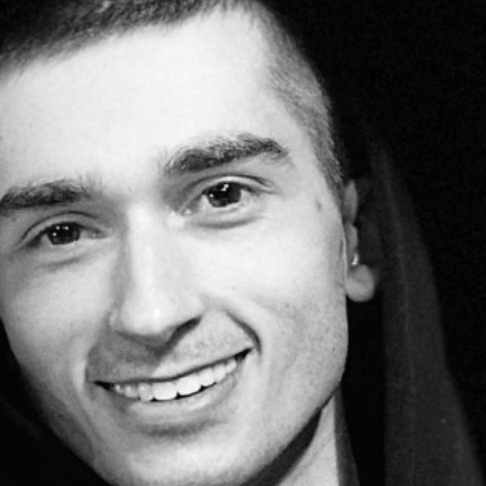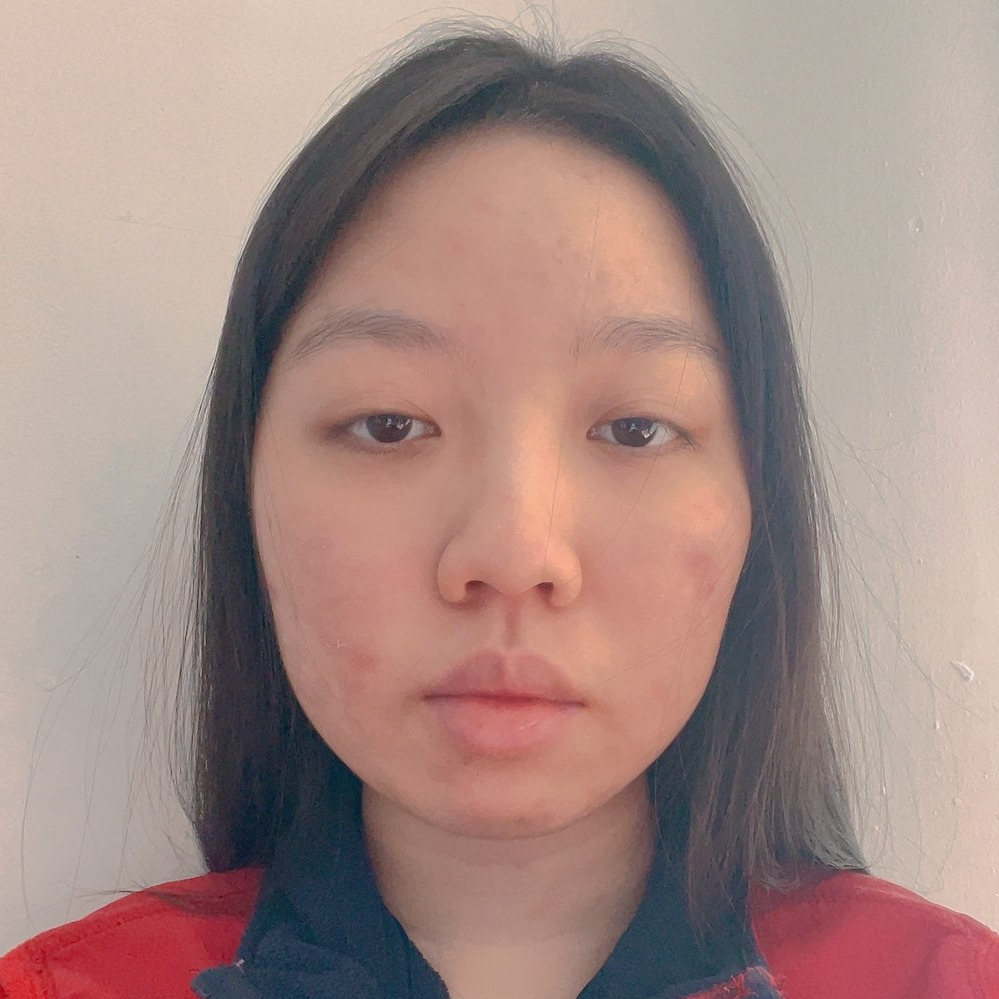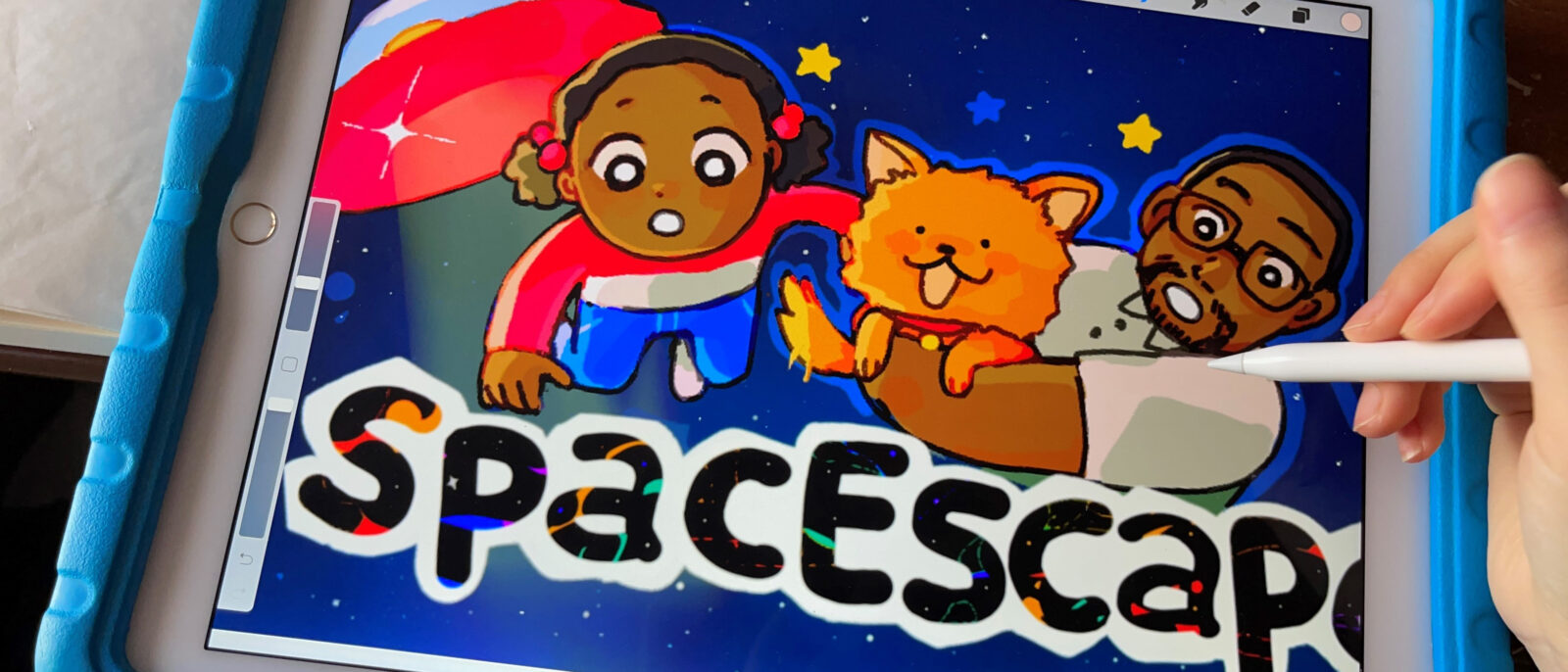Harrisburg University students assisting with the development of a mobile learning game called SpacEscape have been exposed to hands-on coding and design experience that will prove invaluable throughout their careers.
SpacEscape is being developed to understand how students learn astronomy on a mobile device as it is created. Research suggests that socioeconomic status, age, gender, race, ethnicity, and other characteristics influences how we learn and solve problems.
Mobile devices also play an important role in how we learn and solve problems, yet there is little research that shows how backgrounds affect how students use mobile devices to learn and solve problems.
As the dependence on mobile devices in learning continues to grow, this lack of research poses a serious problem, since, as educators argue, students must be prepared for a much different world from that of the previous generation. And today’s world demands complex problem-solving skills involving the use of mobile devices.
This is what prompted HU Interactive Media Professor Dr. Sa Liu, Computer and Information Sciences Lecturers Mina Gabriel and Brian Grey to undertake a research project dubbed: Learner Characteristics on Problem Solving Using a Mobile Serious Game. Harrisburg University awarded the team a more than $18,000 Harrisburg University Presidential Research Grant to work with students on the project.

Harrisburg University junior Jesse Garner, who is majoring in Computer and Information Sciences with a concentration in Cybersecurity, worked on SpacEscape for seven months last year. He joined a collaborative group to tackle several bugs that existed in the game. Much like a team of employees would work together to accomplish the same task, Garner attended team meetings and brainstorming sessions to figure out how the game could be improved. He also helped create a database used to log user actions and collect data used for the analysis of the average user’s experience.
“From this project, I learned first and foremost the basics of working with Java code in Android Studio, along with the use of a collaborative code repository (GitHub). My hope is that taking on coding-focused projects such as SpacEscape will expand my skillset, since I do not believe that my area of expertise is programming, which is highly valued as a skill in computer science, across the board,” Garner said.
“My hope is to land a security focused job upon graduation, likely starting as a security analyst, with the end goal of becoming a cloud security engineer,” he added. “From my previous experience on the project, it is my hope that I will achieve more than the first iteration, due to the learning curve of technologies for which I have gained familiarity.”

Mickey Lam, a sophomore Interactive Media major, started working on SpacEscape as a high school senior. She was invited back as a student at HU, working as part of the game’s design team, drawing visuals, characters, and assets.
Although Lam is not certain of what career she wants to pursue yet, she said she knows she wants to work in the design or animation field. Lam said her experience working on SpacEscape has helped her prepare for either field.
“Whether it is in films or games, I’m interested in being able to design or animate characters, environments, assets, and special effects,” she said. “The work on this project helped me better my communication skills and allowed me to sharpen up my art as well, both of which are very prevalent and needed in the fields I hope to pursue.”
SpacEscape not only provides invaluable hands-on experience employers look for; it also shows students how their work can make a lasting difference, Dr. Liu noted.
“The findings will not only help understand the impact of individual differences on learning in an (educational) game environment, but also inform the game design to support learners based on their individual characteristics,” she said.
Long term, Dr. Liu said the research and development stemming from this research will form the basis of a book to be published by International Publisher of information Science and Technology Research (IGI Global). It also will be submitted for possible funding from The Institute of Education Sciences and the National Science Foundation.
“This project provides design, development, and research opportunities to HU students and builds collaborative relationships with a local school district,” Dr. Liu said. “According to the Program for International Student Assessment, U.S. student problem-solving performance ranked 24th out of 39 countries in 2003, ,24th out of 44 countries in 2012, and 14th out of 53 countries in 2015. Therefore, it is important to improve U.S. student problem-solving skills to prepare them for the future.”
About Harrisburg University
Accredited by the Middle States Commission on Higher Education, Harrisburg University is a private non-profit university offering bachelor and graduate degree programs in science, technology, and math fields. For more information on the University’s affordable demand-driven undergraduate and graduate programs, call 717.901.5146 or email, Connect@HarrisburgU.edu.
